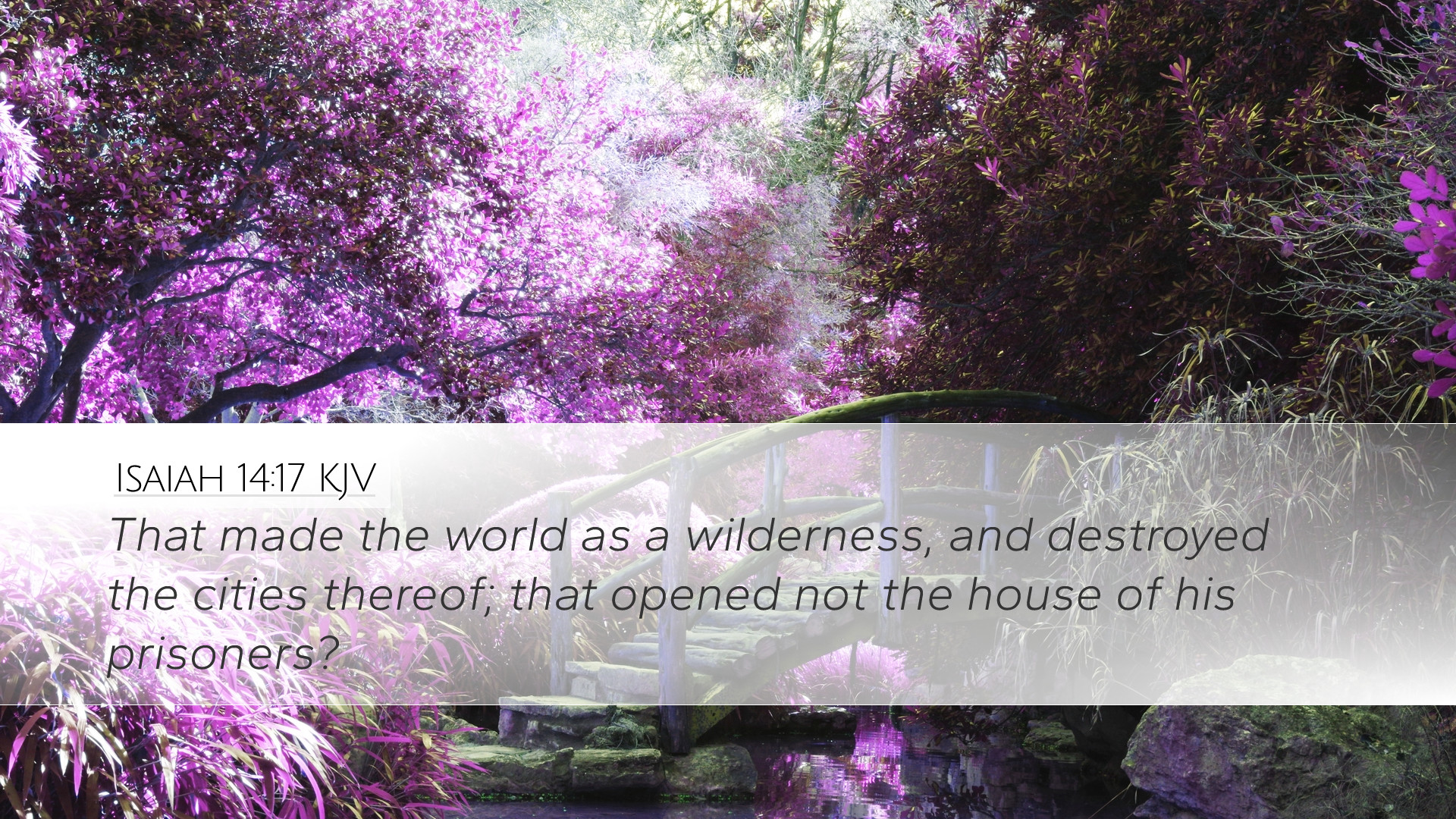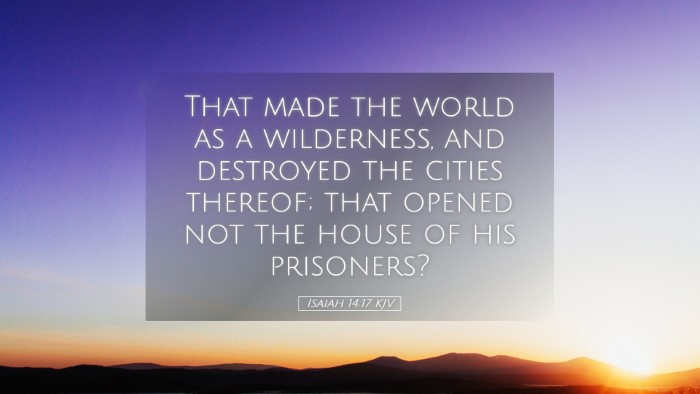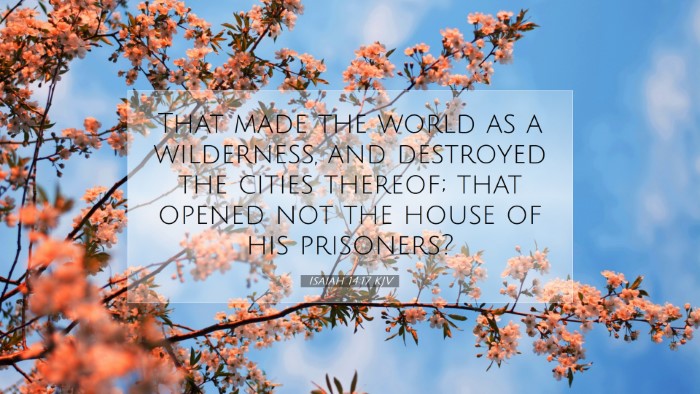Bible Commentary on Isaiah 14:17
Isaiah 14:17: "That made the world as a wilderness, and destroyed the cities thereof; that opened not the house of his prisoners." (KJV)
This verse appears in the context of a larger passage in Isaiah, where the prophet addresses the pride and downfall of the king of Babylon. In this commentary, insights from classical public domain sources such as Matthew Henry, Albert Barnes, and Adam Clarke will be integrated to provide a comprehensive understanding of the verse.
Contextual Background
Isaiah 14 begins with a prophetic declaration about the return of Israel from exile and the subsequent downfall of Babylon. This chapter contains an oracle against the king of Babylon, which highlights not only the divine judgment awaiting him but also contrasts it with God's ultimate restoration of His people.
The King of Babylon
According to Matthew Henry, the king of Babylon represents more than just a historical figure; he symbolizes arrogance and pride that leads to destruction. The verse illustrates the devastation that results from tyrannical leadership — a world turned to wilderness under oppressive rule.
- Pride and Destruction: Both Barnes and Clarke note that the king’s actions “made the world as a wilderness.” This can be interpreted as a critique of any sovereign or power that exploits their position, leading to societal decay.
- Population and Cities: The phrase “destroyed the cities thereof” reflects the destruction of civilization and culture under oppression, resonating with contemporary issues where governance fails the populace.
The Metaphor of Wilderness
The wilderness evokes images of desolation and barrenness. Henry comments that it symbolizes not just physical destruction but also spiritual barrenness. The tyranny of the ruler leads to a loss of hope and vitality in the land.
Spiritual and Theological Lessons
The implications of leading a land into spiritual desolation can be profound. Adam Clarke emphasizes that leadership carries with it a God-given responsibility to foster life and flourishing. The ruler’s failure to fulfill this role results in divine judgment.
Prisoners and Freedom
“That opened not the house of his prisoners” signifies the oppression and injustice faced by those in captivity. Both Clarke and Barnes draw attention to the king’s unwillingness to release captives, illustrating a broader theme of inhumanity that pervades oppressive regimes.
- Injustice: The opening of prisons indicates mercy and justice, which are absent in the heart of the tyrant.
- Symbol of Redemption: This concept reflects God's nature as one who seeks to liberate those bound by sin and oppression.
Judgment and Restoration
This verse serves as a reminder that while earthly kings may wield power, their reigns are temporary. God's judgment is inevitable. As such, Matthews Henry mentions that no matter how powerful the ruler, they will ultimately face accountability before God.
Furthermore, Clarke posits that this passage is not just a lament over Babylon but a proclamation of hope for Zion. It underscores that God will ultimately restore and redeem His people from every form of oppression.
Application for Pastors and Theologians
For pastors and theologians, this text is rich in both historical and practical application. It beckons leaders to reflect on their responsibilities—how they govern and lead others toward hope instead of despair.
- Reflection on Leadership: Leaders must seek to emulate God's justice and mercy, providing for the needs of the marginalized and oppressed.
- Preaching Hope: Pastors are encouraged to deliver messages that remind their congregations of God’s coming restoration, even when current circumstances appear bleak.
Conclusion
Isaiah 14:17 is a powerful reminder of the consequences of prideful leadership and the divine mandate to seek justice and freedom for all. This commentary integrates significant insights from historical theologians to underscore the enduring relevance of God's Word.
In exploring the depths of this verse, we are called to both reflect on our own roles in society and to proclaim the hopeful message of redemption in Christ, who liberates His people from every form of bondage.


